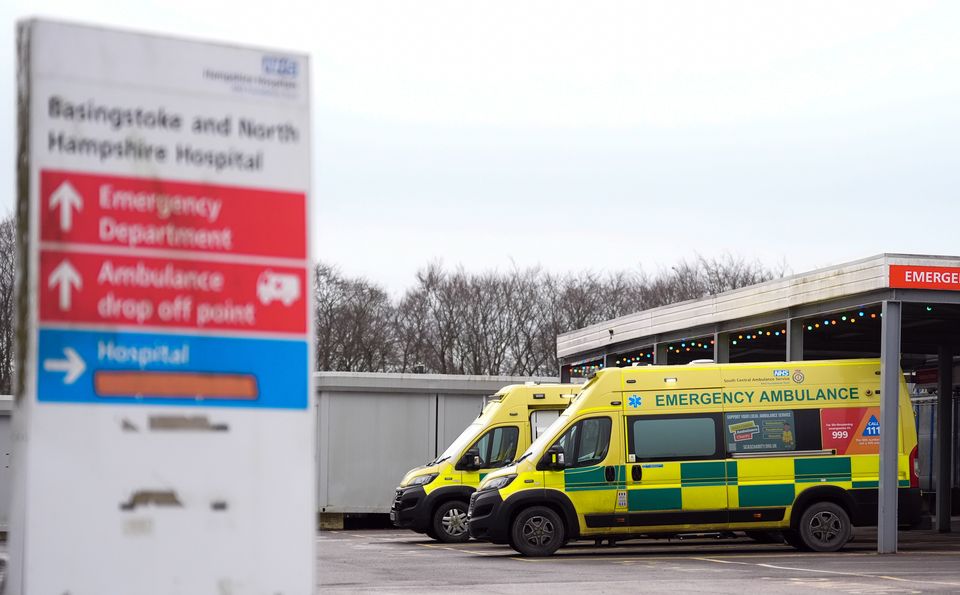The number of people in hospital with flu in England continues to rise, with staff reporting they are under the same pressure as at the height of the Covid pandemic, the NHS medical director has said.
Data from NHS England shows there were an average of 5,408 flu patients in beds in England each day last week, including 256 in critical care.
This is up 21% from 4,469 the previous week, when 211 were in critical care.
It is also nearly five times the number on December 1, when the total stood at 1,098.
Professor Sir Stephen Powis, NHS national medical director, said it was hard to quantify “how tough it is for frontline staff at the moment – with some staff working in A&E saying that their days at work feel like some of the days we had during the height of the pandemic”.
Hampshire Hospitals NHS Foundation Trust declared a critical incident on Tuesday (Andrew Matthews/PA)
It comes after around 20 NHS trusts across England declared critical incidents and said their services are experiencing very high demand.
Declaring a critical incident allows hospitals to seek help from other local health systems so all capacity is used, concentrate care where it is most needed and ask some staff to come back from annual leave to work.
Professor Sir Stephen Powis, NHS national medical director, said: “It is clear that hospitals are under exceptional pressure at the start of this new year, with mammoth demand stemming from this ongoing cold weather snap and respiratory viruses like flu – all on the back of 2024 being the busiest year on record for A&E and ambulance teams.
“I never fail to be impressed by the remarkable job that NHS staff across a range of services (are doing) in the face of current challenges, remaining compassionate, professional and doing everything they can to see patients as quickly as possible while often working in hospitals that are full to bursting.
“It is hard to quantify just through the data how tough it is for frontline staff at the moment – with some staff working in A&E saying that their days at work feel like some of the days we had during the height of the pandemic.
“That hard work and resilience from staff, alongside vital tools like surgical hubs and community diagnostic centres that keep planned care isolated from winter pressure, meant the waiting list fell again in November to 7.48 million, with the NHS delivering 5% more activity than the same period pre-pandemic.”
Prof Powis urged people to only use 999 and A&E in life-threatening emergencies and use NHS 111 and 111 online for other conditions, as well as using GP and pharmacy services.
Health and Social Care Secretary, Wes Streeting said: “In the past six months, we have ended the junior doctors’ strikes so staff are on the front line not the picket line for the first winter in three years, and introduced the new RSV vaccine.
“But despite the best efforts of staff, patients are still receiving unacceptable standards of care.
“Although this winter’s campaign vaccinated more people than last winter, this strain of flu has hit hard, putting more than three times as many patients into hospital compared to this time last year.
“Annual winter pressures should not mean an annual winter crisis, which is why this Government is making significant investment in the NHS, undertaking fundamental reform, and acting now to improve social care.
“It will take time to turn the NHS around, but the fact that waiting lists are now falling shows that change is possible.”
